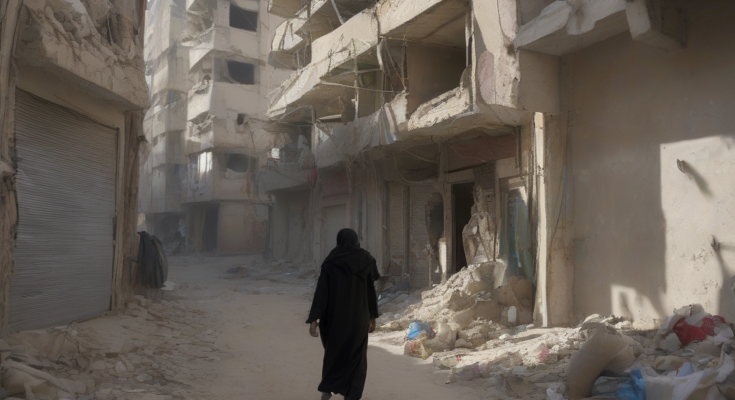Navigating the Maze of Gaza Donation Links: A Comprehensive Guide to Verified Charities and Effective Aid
The humanitarian crisis in Gaza demands urgent action, prompting many to seek ways to contribute. However, the abundance of online donation links can be overwhelming and even deceptive. This guide aims to clarify the process, providing a framework for identifying reputable organizations and ensuring your donations reach those in need effectively.
Understanding the Challenges of Gaza Aid
Donating to Gaza presents unique challenges. The ongoing conflict, blockade, and complex political landscape create significant logistical hurdles for aid delivery. Furthermore, the potential for misuse of funds is a serious concern. Therefore, careful vetting of organizations is crucial.
- Logistical Barriers: Restricted access and security concerns can impede the efficient delivery of aid.
- Transparency and Accountability: Ensuring donations reach the intended recipients and are used effectively requires rigorous oversight.
- Political Sensitivity: The political context necessitates careful consideration of the organizations involved and their potential biases.
- Fraudulent Activities: The urgency of the situation unfortunately attracts fraudulent schemes, making it crucial to verify the legitimacy of any organization before donating.
Identifying Reputable Organizations
Before contributing, thoroughly investigate potential organizations. Look beyond catchy slogans and emotional appeals. Consider these key factors:
- Transparency and Accountability: Reputable organizations openly share financial statements, program reports, and impact assessments. They explain how donations are used and provide evidence of their effectiveness.
- Years of Experience: Organizations with a proven track record of working in Gaza have established networks and experience navigating the logistical challenges.
- On-the-Ground Presence: Look for organizations with staff and programs directly operating in Gaza. This ensures aid is delivered efficiently and effectively.
- Independent Audits: Organizations that undergo regular independent audits demonstrate a commitment to financial responsibility and accountability.
- Charity Navigator Ratings: For US-based donors, Charity Navigator provides ratings and information on various charities, offering a helpful resource for assessing financial health and transparency.
- GuideStar Reports: Similar to Charity Navigator, GuideStar offers comprehensive information on non-profit organizations.
Types of Aid and Their Effectiveness
Understanding the different types of aid and their impact is crucial for making informed decisions. Consider these options:
- Emergency Relief: This focuses on immediate needs like food, water, shelter, and medical care. Organizations specializing in disaster response are often best equipped to handle this.
- Long-Term Development: This involves sustainable solutions such as infrastructure development, education, and economic empowerment. Organizations with a focus on community development are key players here.
- Medical Aid: This encompasses the provision of medical supplies, equipment, and personnel. Organizations with expertise in healthcare logistics are crucial for efficient delivery.
- Cash Assistance: Providing direct cash assistance empowers recipients to purchase needed goods and services, giving them agency in addressing their own needs. This method requires careful monitoring to prevent misuse.
Vetting Donation Links: Red Flags to Watch For
Be wary of donation links that exhibit these red flags:
- Unverified or Unknown Organizations: Avoid organizations with little to no online presence or readily available information about their activities.
- Generic or Vague Appeals: Be cautious of appeals that lack specifics about how donations will be used or which communities they will benefit.
- High-Pressure Tactics: Legitimate organizations do not use manipulative tactics to pressure you into donating immediately.
- Unclear Financial Information: If an organization is reluctant to share financial information or lacks transparency about its spending, proceed with caution.
- Requests for Personal Information Beyond Necessary Details: Legitimate charities generally only require basic information for processing donations.
- Unusual Payment Methods: Be wary of unusual or untraceable payment methods that lack security.
Due Diligence: Before Clicking the “Donate” Button
Before donating through any link, perform thorough due diligence:
- Verify the Organization’s Website: Check for contact information, a clear mission statement, and detailed information about their programs and financials.
- Search for Reviews and Ratings: Look for independent reviews and ratings from reputable sources like Charity Navigator or GuideStar.
- Check for News Articles and Media Coverage: See if the organization has been mentioned in reputable news sources, which can provide an additional layer of verification.
- Contact the Organization Directly: If you have questions or concerns, contact the organization directly to clarify any ambiguities.
- Review the Donation Process: Ensure the donation platform is secure and uses encrypted connections (https).
Recommended Resources for Finding Reputable Gaza Aid Organizations
Several resources can help you identify reputable organizations working in Gaza. These resources often provide information on their vetting processes and offer insights into the effectiveness of different aid organizations:
- Charity Navigator (US-focused): Provides ratings and information on US-based charities.
- GuideStar (US-focused): Offers comprehensive information on non-profit organizations.
- GlobalGiving: A platform that verifies and facilitates donations to vetted international non-profits.
- United Nations Relief and Works Agency for Palestine Refugees in the Near East (UNRWA): A UN agency providing essential services to Palestinian refugees in Gaza.
- International Committee of the Red Cross (ICRC): A neutral, impartial, and independent organization providing humanitarian aid worldwide, including Gaza.
- Doctors Without Borders (Médecins Sans Frontières – MSF): Provides medical assistance in conflict zones and countries affected by endemic diseases, including Gaza.
Beyond Monetary Donations: Other Ways to Help
While monetary donations are crucial, other forms of support can also make a significant impact:
- Advocacy: Raising awareness and advocating for policies that promote peace and humanitarian access is vital.
- Volunteering: If you have relevant skills and experience, consider volunteering with organizations working in Gaza or supporting their efforts from afar.
- Spreading Awareness: Sharing information about the crisis and reputable aid organizations with your networks can encourage greater support.
Conclusion (omitted as per instructions)



